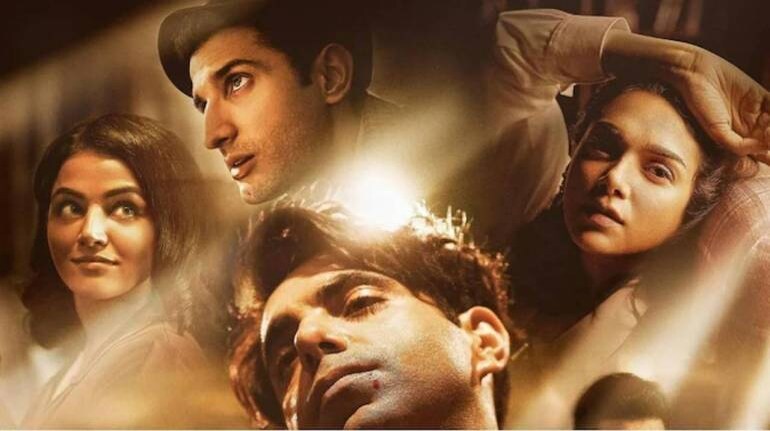



Nostalgia does increase our ability to self-soothe. I keep revisiting the time of the pandemic to understand almost everything about the new world order. It somewhat explains why the world is in love with nostalgia at this moment — a spillover from the two isolated years. Like an emotional pacifier, nostalgia about all things, animate and inanimate, are helping us accept and get accustomed to new realities that aren’t just jarring, but stressful. Nostalgia is like a drug. “Nostalgia is a powerful feeling; it can drown anything,” filmmaker-philosopher Terrence Malick famously said, suggesting, perhaps, it’s not necessarily a good thing that nostalgia drowns out so much.
When the nostalgia is centred around Bollywood, India’s most-loved magic bullet after weddings and cricket, we can connect to some of our primal selves — the intricate self-pity of Dilip Kumar, the sensual joie de vivre of Helen, the sass of Deepika Padukone or the swag of Shah Rukh Khan. They are aspirational, they are ours together. Netflix’s docu-series The Romantics, about Yash Raj Films (YRF), is glorified PR and smug in its acceptance of malaises like nepotism with a breeziness, but its celebration of Bollywood love easily sweeps us up. The present that The Romantics depicts, largely through the first-ever interview of YRF scion and head honcho Aditya Chopra, is chilling at times: Eg. when Chopra says he wants to “institutionalise creativity”.
Vasan Bala’s docu-series Cinema Marte Dum Tak about C-grade filmmakers who flourished in the 1990s and early 2000s making micro-budget films that capitalised on sleaze and horror to attract crowds to decrepit movie theatres is authentic in its portrayal of the sub-culture it digs into, but repetitively makes just two or three points about the margins of filmmaking in Bollywood.
Vikramaditya Motwane’s period drama Jubilee is a fictional retelling of the secular, cosmopolitan beginnings of Bombay cinema. All the three series, nostalgia-driven, with great production values, make us intensely aware of our shared love of Hindi cinema, unifier, drug and incandescent tamasha. Instagram inner-lifers would say, “They make us feel belonged.”
Jubilee has great performances; its production rigour and attention to period details are impressive, and the music by Alokananda Dasgupta is a thing of inspired genius. Motwane as a filmmaker can’t be pinned down to a genre or style. This is his most elaborate work in terms of scale and expanse. Interestingly, his mother Dipa De Motwane, a seasoned Bollywood producer, is a producer of Jubilee. A huge cast and crew which includes writer Atul Sabharwal, cinematographer Pratik Shah, editor Aarti Bajaj, and Aditi Rao Hydari, Prosenjit Chatterjee, Wamiqa Gabbi, Aparshakti Khurana, Sidhant Gupta and Ram Kapoor in the highly immersive cast of actors portrays how Hindi cinema began.
Glamour and sleaze, its layer-cake hierarchies, corruption and stardust, Jubilee has it all. Its gaze is observant rather than immersive, distanced about the new industry’s workings rather than judging them or celebrating them. Somehow the glee and swag of it all is conspicuously absent from the series. Unlike some of Motwane’s best movies, which are uniquely atmospheric, Jubilee is too cool in its tone to have the you-are-here authenticity that qualifies the best of nostalgia. Yet, it’s a great whetter; a great introduction too, to generations who won’t possibly guess the numerous references and amalgamations (“Is he Dev Anand? No, wait, that’s the Raj Kapoor story. Oh that’s so Ichak Dana Bichak Dana”) but, possibly, understand where Bollywood’s history of disrespecting writers and star tantrums began. It can’t be a terrible idea to introduce 15-year-olds to the fact that cinema has always been a political mouthpiece and how, often, the most defined hierarchies can reward ambition and courage.
In all three web-series, the struggle is on show — without pain and patience, there is no reward in any art form. For nostalgia to be effective, the ugliness of past structures and practices get swept aside. As long as the writer or filmmaker can conjure the warm fuzzies, nostalgia works.
Nostalgia somehow makes us generous and forgiving — while recreating the past, it also pays ode to our memory. What we don’t see in any of the three shows is big Bollywood’s egomania, its ossified practices and ethos like nepotism, and severe lack of originality. Those are between the lines — notice, and go with the rose-tinted flow.
Discover the latest Business News, Sensex, and Nifty updates. Obtain Personal Finance insights, tax queries, and expert opinions on Moneycontrol or download the Moneycontrol App to stay updated!
Find the best of Al News in one place, specially curated for you every weekend.
Stay on top of the latest tech trends and biggest startup news.